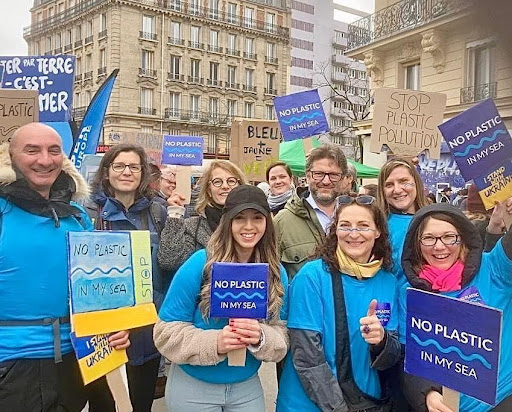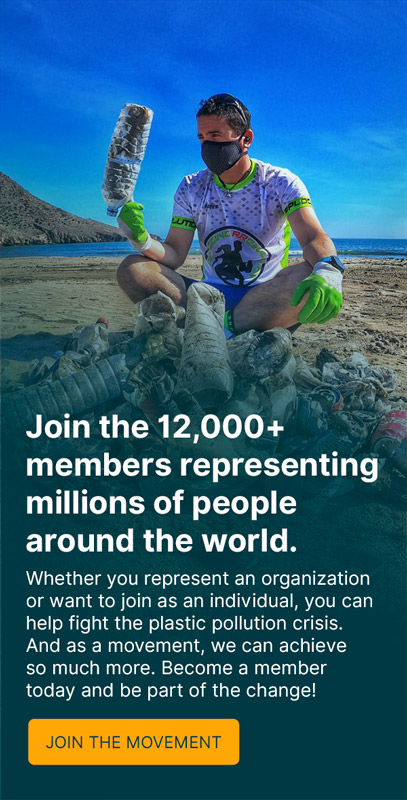I am Muriel Papin, the head of the NGO No Plastic In My Sea. We are a French organisation, based in Paris, whose mission is to tackle plastic pollution at source.
We raise awareness about the strong correlation between plastic pollution and plastic overproduction and campaign to create conditions for reduction. We help organisations and consumers to decrease their use of plastic, particularly single use plastic, and support the transition to reuse.
We have a completely Break Free From Plastic mindset and were very happy to join the movement in 2020. As a small NGO, it is very important for us to be “fed” with new information and be connected to the many different kinds of expertise within the movement. This really helps empower us and the work we do and increase our legitimacy.
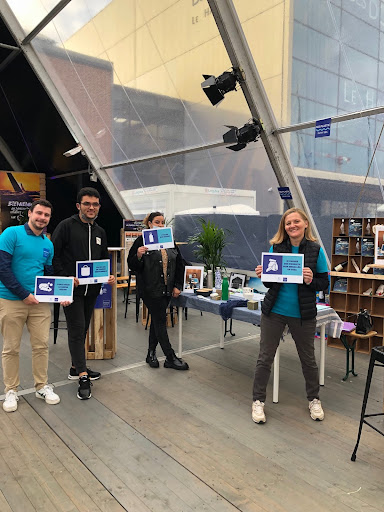
Why is plastic pollution an important issue for your organisation? What’s the story?
Tackling plastic pollution is the purpose of our organisation.
We were founded in 2018 and our first activities focused on building up awareness campaigns, like the “No Plastic Challenge”, which mobilises people and organisations across 10-15 days to measure their plastic consumption, commit to reduction and amplify the action.
At the beginning, the event was only present on social media. As years have passed, the event has grown and we have optimised it through developing toolkits for participating organisations (schools, colleges, sport clubs and companies). Currently, around 500 ambassadors lead the event across France and help us engage several thousands of people.
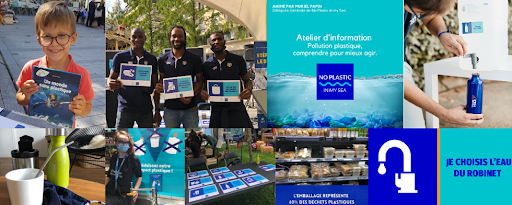
Our two other main actions are:
• Our influence and advocacy campaigns on promoting tap water and on reuse solutions.
• Sourcing relevant solutions existing on the market, in order to help the shareholders to give up with plastic use. In 2020, we published a “Plastic pollution solutions benchmark” that sourced 300 solutions of reduction, reuse, bulk, and eco-conception.
Tell us more about your ongoing campaign(-s)/activity(-ies)
Over the past year, we have increasingly been participating in several taskforces and campaigns within BFFP Europe, which has helped us in our own campaigns.
In France, people consume a lot of water from plastic bottles. To help with reducing the number of plastic bottles bought, we have a campaign on promoting tap water. We have succeeded in garnering a lot of support from many actors including NGOs, companies and public organisations by promoting tap water use in the press and on social media. We also engaged some actors like Lush to offer refill points.
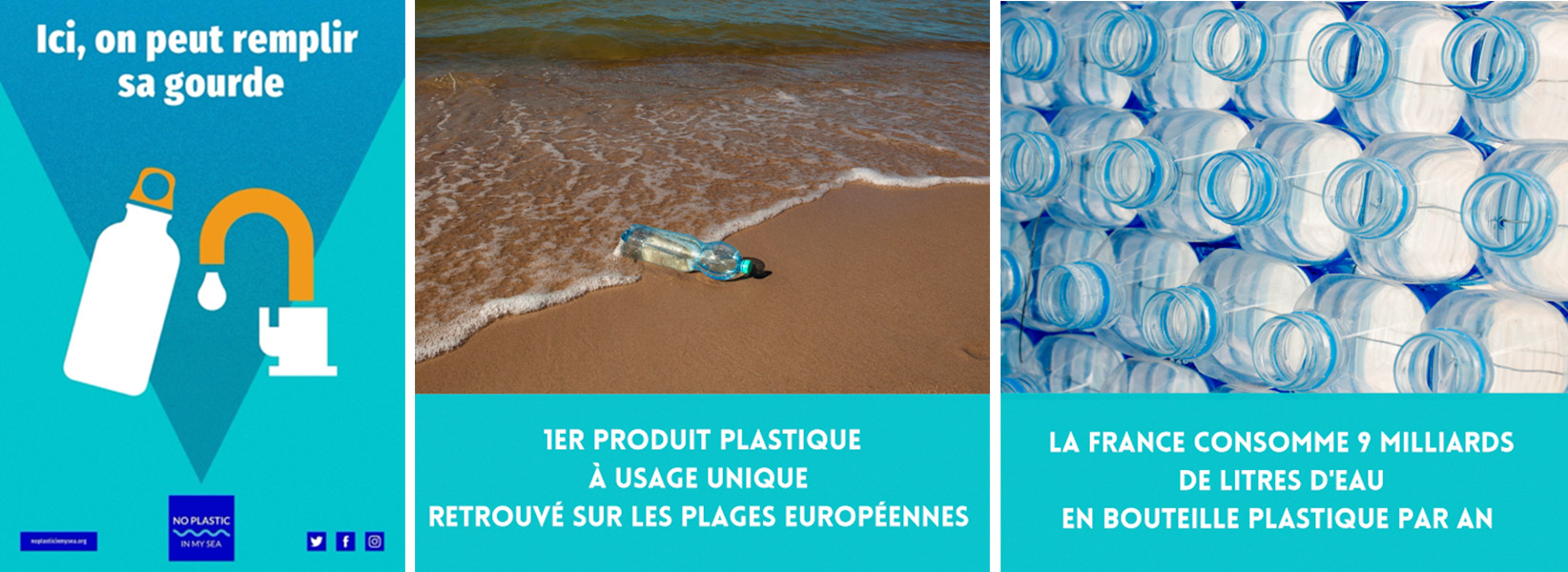
We are very involved in the reuse movement and strongly support the “#WeChooseReuse campaign in France. We have engaged a lot of companies who have become signatories of the open letter. And we have organised several webinars on this issue.
As a member of #breakfreefromplastic’s Corporate Accountability task force, we have worked with Changing Markets Foundation on the Fossil Fashion campaign and on the Under Wraps report.
This collaboration has provided plenty of inspiration and pushed us to launch our own enquiry on the take away food sector in France. In 2021, we published a report that challenged the sector’s lack of engagement in reducing plastic waste, despite the anti-waste law. Our report had very good press coverage and was helpful for the reuse companies trying to push a transformation in this sector.
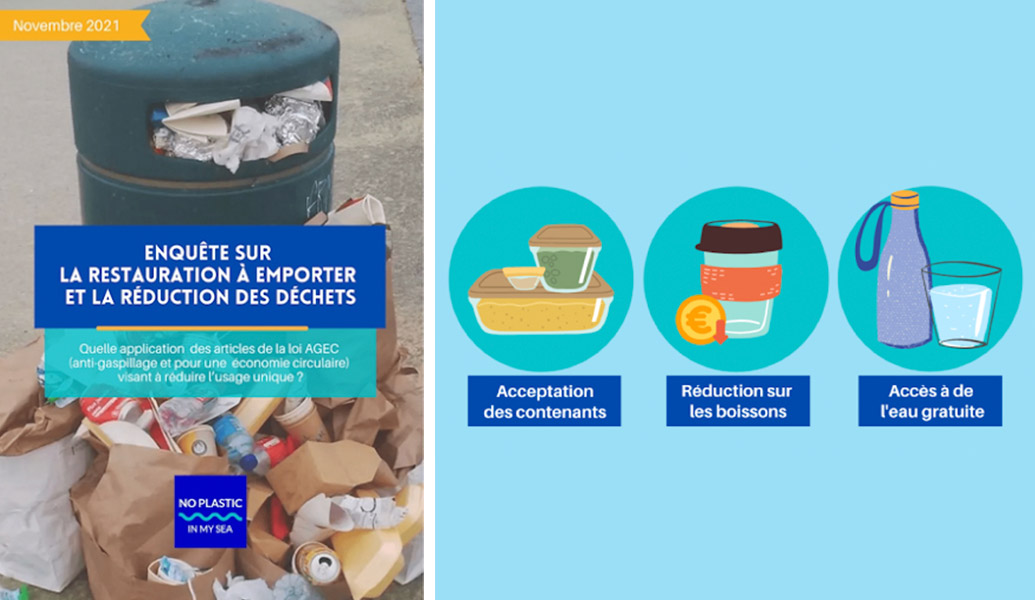
And last but not least, we have also been very shocked by all the studies about health risks of plastic pollution and we have been collaborating with experts on the issue. We have recently published a synthesis of the most concerning studies, shared it with the media and we have organised a conference on this issue.
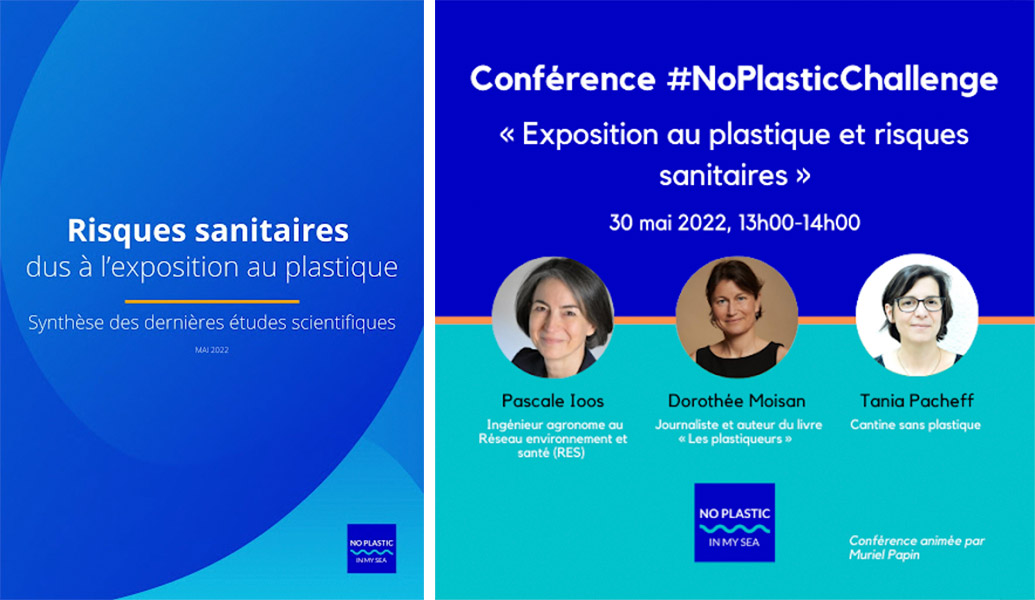
Takeaways and looking forward:
At the beginning of 2020, we had some hope that the fight against plastic pollution would be supported by France’s new anti-waste Law. But the pandemic provided some setbacks. Recycling is still widely supported and understood as being a solution to plastic pollution. Despite having a very dynamic reuse ecosystem, this approach is not encouraged or funded enough. Moreover, we currently face a complicated political time in France and we do not know how the government will respond to the plastic pollution crisis or circular economy issues in the future (energy issues dominate current environmental discussions).
For the moment, we see three main ways to leverage our actions.
Firstly, we will monitor international improvement and share them across France in order to maintain a high level of ambition. For instance, we have recently shared with the media an Overview of European regulations promoting reuse and reduction. We hope the Packaging and Packaging Waste Directive in November will give a strong signal in favour of reuse.
Secondly, we believe that all the plastics externalities are still unknown or underestimated and we will continue to reveal them, especially on the issues of health risks.
Finally, we will continue to challenge the “business as usual” models and develop coalitions with all stakeholders involved in reduction and reuse, in order to increase media coverage of these solutions… and make them mainstream one day.
What keeps you fighting for a future free from plastic pollution?
To be honest, sometimes we can be desperate and afraid to fail against the plastic monster. To keep up our the energy, we need the best carburant on the market: a mix of victories and hope. And thanks to the BFFP movement, there are many reasons to feel confident, especially with the perspective of an international global plastics treaty!
We would like to thank Muriel Papin, head of the NGO No Plastic In My Sea, for taking the time to reply to our questions.

